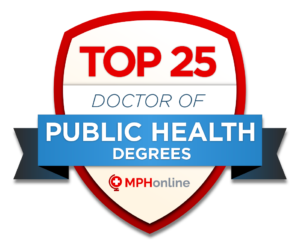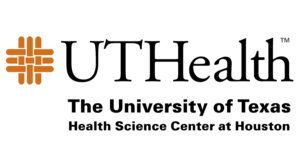
- Health Communication
- Healthcare Management
- Global Health
- Artificial Intelligence in Healthcare
- Choose a Public Health Degree Based on Your Personality
- Public Health vs. Medicine vs. Nursing
- What is Online Learning
- Master’s in Health Informatics vs. Health Information Management
- MPH vs. MSPH vs. MHS
- Online MPH programs with no GRE requirements
- Accelerated Online MPH
- Online Executive MPH
- Online DrPH
- Biostatistics
- Community Health and Health Promotion
- Environmental Health
- MPH in Epidemiology vs. Biostatistics
- Generalist Public Health
- Health Equity
- Health Science
- Health & Human Services
- Infectious Disease
- Maternal & Child Health
- Occupational Health
- Social and Behavioral Health
- What Can You Do With a Public Health Degree?
- How to Be a Good Candidate for a Public Health Job
- How to Become a Biostatistician
- How to Become an Emergency Management Specialist
- How to Become an Environmental Health Specialist
- How to Become a Health Educator
- Healthcare Administration Certifications
- Healthcare Administrator Salary
- Types of Epidemiologists and Salary
- How to Become an Occupational Health and Safety Specialist
- How to Become a Public Health Nurse
- Nutritionist vs Dietitian
- Registration Examination for Dietitians (CDR Exam)
- Internships for MPH Students
- Health Informatics Careers and Jobs
- Health Informatics vs. Bioinformatics
- Guide to CDC Jobs
- Massachusetts
- North Carolina
Home » Degrees » Doctorate » DRPH

Explore Doctor of Public Health Programs (PhD & DPH)
Pursuing higher positions in public health can prove to be beneficial for individuals with leadership characteristics. Those in public health that seek the most out of their degree should consider enrolling into Doctor of Philosophy (PhD) in Public Health or Doctorate of Public Health (DrPH) in Public Health programs across the country.
The Doctorate of Public Health (DrPH) and the PhD in Public Health are advanced terminal degrees for public health, meant for experienced public health professionals that already have their Masters in Public Health (MPH) or similar degree. Specific degree nomenclature varies based on university and specific public health school. Some offer DPH degrees, while other universities name the terminal degree PhD in Public Health, Doctorate in Public Health, or Doctoral Public Health.
These terminal degree programs in public health can prepare learners for careers in research, education, or even management within the public health sector. Graduate level public health specialists are in great need across the country to assist with nationwide epidemic research as well as the implementation of vital government programs.

George Washington University
School of public health.
Earn your DrPH online from the George Washington University. Our CEPH-accredited program combines interactive, online classes and an on-campus immersion to prepare you to become a thought leader. You will graduate poised to shape public health policy, programs, and initiatives in the U.S. and worldwide. No GRE required.
- Complete the online DrPH program in as few as 36 months.
- The online DrPH program is CEPH accredited.
- No GRE required.
info SPONSORED
PhD in Public Health vs. Doctor of Public Health
A PhD in Public Health will be focused on developing the skills needed to become an advanced researcher. The understanding of research theories and methodologies is an important part of this degree. Even though a PhD in Public Health is more narrowly focused, it lends itself to careers in various health sectors, such as academia, governmental agencies, and pharmaceutical companies.
A DrPH is an advanced graduate-level degree that focuses on the professional and practical elements of the field, rather than the academic. It is designed for public health practitioners and is geared towards practice and fieldwork. It is multidisciplinary and will cover everything from communications and marketing to advocacy and economics. It was developed to train students and practitioners for careers in public health leadership.
Both the DrPH and PhD have career options in academia available to them. These two degrees are suited for individuals who have received an MPH or another graduate-level degree and have worked in their field for a number of years. The DrPH is ideal for the public health practitioner looking to advance their career to positions needing additional education. The PhD may suit an individual earlier on in their career who is looking to embed themselves in a career of research.
What are the Typical Pre-Requisites of a DrPH/PhD Degree?
As mentioned above, the prerequisites for advanced degrees require a master’s degree and post-graduate work experience. For some programs, if an individual applying does not have their master’s in public health they will require master’s level classes in public health up to a certain amount of credit hours. A recent Graduate Record Exam (GRE) score is often required along with academic transcripts. An additional requirement for admittance into a Doctorate program is a personal statement or statement or purpose.
Concentration Options for a DrPH/PhD
The degree options for a DrPH or a PhD become more specialized within those concentrations. Those receiving their PhD in public health will have to pick a program by the department they wish to specialize and conduct research in. This could be Health Policy and Administration, Health Economics, Health Systems, etc. A DrPH will also specialize by department, but will often pick from the core public health concentrations (Epidemiology, Environmental Health, etc.) along with a few additional departments (i.e. International Health and Social and Behavioral Sciences).
Online Doctor of Public Health Options
Entering the right educational program is important to the success of a career. Students that are interested in obtaining their degree online should research their chosen school’s accreditation status prior to applying. Since this program is highly research-oriented, learners are expected to take part in a lot of independent learning in an online environment.
Online Doctorate programs will have the same requirements and courses as a traditional degree. Online programs allow for greater flexibility with work and family life but also require self-discipline and accountability. Some online programs will require site visits to the campus or alternate sites for orientations, leadership development, adviser meetings, etc. Classes will be taught online either through live streams or recorded video. Online discussion forums and group work are also the main parts of the online curriculum. A dissertation is still a requirement for online doctorate programs and it may be required that it is presented in person.
Typical Curriculum & Classes
In general, the DrPH degree curriculum will consist of core courses, research courses, and a culminating project such as a capstone course, dissertation, or thesis. The core courses, much like the MPH, will cover the main concentrations in Public Health (Epidemiology, Biostatistics, Environmental Health, Health Policy, etc.) and will also include statistics and data management. Each of these classes are taught with a focus on Leadership and Organization. Additional classes may include:
- Marketing and Public Relations
- Community and Cultural Understanding
These will guide the focus of the degree. A Dissertation or thesis is often required at the end of each semester, year or at the end of the program.
PhD in Public Health
The PhD in Public Health is much less straightforward and will vary significantly from program to program and within degrees. A PhD in Public Health is much more research-based and will cover topics ranging from disease and injury prevention to health informatics and communication. Many schools do not offer a PhD in Public Health per se, but in Health Policy, Bioethics, Environmental Health Sciences, Chronic Disease Epidemiology, etc. Each of these is rooted in public health but are much more focused in their scope. Because of this, classes and curriculum will be much more focused and centered around research.
Different Career Opportunities
After completing a DrPH or Ph.D. in Public Health, graduates may seek out positions in government agencies, healthcare facilities, or even community organizations. Professionals at this level have the capacity to become instructors of public health at universities, researchers for public health associations, and directors of nonprofit agencies.
Having a doctorate degree in this discipline gives learners the most education available for this field. With a Ph.D. in Public Health, professionals in the field may have access to careers working with government organizations in the planning, implementation, and training of important public health procedures. Organizations, such as American Public Health Association , accept members that are in public health careers that desire to communicate their studies and policies on different platforms. Getting involved with a society such as this one can allow professionals to spread their work to educational and professional settings across the country.
Information updated as of April 2020
- Introduction
- Create Pathways
- Educate Generations
- Foster Communities
- Shape Public Health Data Science
- Enhance Trust
- Achieve Operational Excellence
- Deans, Chairs & Leadership
- Leadership Council
- Dean in the News
- Dean's Messages
- Get Involved
- DEIB Mission
- Message from DEIB Associate Dean
- News and Media
- Reading Lists
- The Yale and Slavery Research Project
- Photo Gallery
- Winslow Medal
- Coat of Arms & Mace
- $50 Million Challenge
- For Pandemic Prevention and Global Health
- For Understanding the Health Impacts of Climate Change
- For Health Equity and Justice
- For Powering Health Solutions through Data Science
- For Future Leaders
- For Faculty Leaders
- For Transformational Efforts
- Data, Leadership, and Collaboration at the School of Public Health
- An abiding love for Yale turns into a lasting gift – in 15 minutes
- Endowed Professorship Created at Critical Time for Yale School of Public Health
- Brotherly encouragement spurs gift to support students
- Prestipino creates opportunities for YSPH students, now and later
- Alumna gives back to the school that “opened doors” in male-dominated field
- For Public Health, a Broad Mission and a Way to Amplify Impact
- Couple Endows Scholarship to Put Dreams in Reach for YSPH Students
- A Match Made at YSPH
- A HAPPY Meeting of Public Health and the Arts
- Generous Gift Bolsters Diversity & Inclusion
- Alumni Donations Aid Record Number of YSPH Students
- YSPH’s Rapid Response Fund Needs Donations – Rapidly
- Podiatric Medicine and Orthopedics as Public Health Prevention
- Investing in Future Public Health Leaders
- Support for Veterans and Midcareer Students
- Donor Eases Burden for Policy Students
- A Personal Inspiration for Support of Cancer Research
- Reducing the Burden of Student Debt
- Learning About Global Health Through Global Travel
- A Meeting in Dubai, and a Donation to the School
- Rapid Response Fund
- Planned Giving
- Testimonials
- How to Give
- Assistant/Associate Professor - Chronic Disease Epidemiology
- Associate Research Scientist - Health Policy and Management
- Tenure Track Assistant/Associate Professor in Chronic Disease Epidemiology
- Assistant/Associate/Full Professor - Environmental Epidemiology
- Assistant/Associate/Full Professor - Public Health Data Science and Data Equity
- Assistant/Associate Professor - Health Informatics Department of Biostatistics
- Assistant Professor - Biostatistics
- Postdoctoral Associate - Health Policy and Management
- Postdoctoral Clinical Research Associate - LGBTQ Mental Health - NYC
- Postdoctoral Fellow - Health Services Research
- Postdoctoral Associate - McDougal Lab
- Postdoctoral Associate - Epidemiology of Microbial Diseases
- For the Media
- Issues List
- PDF Issues for Download
- Editorial Style Guide
- Social Media
- Shared Humanity Podcast
- Health & Veritas Podcast
- Maps and Directions
- Accreditation
- Faculty Directory by Name
- Career Achievement Awards
- Annual Research Awards
- Teaching Spotlights
- Biostatistics
- Chronic Disease Epidemiology
- Climate Change and Health Concentration
- Environmental Health Sciences
- Epidemiology of Microbial Diseases
- Global Health
- Health Policy and Management
- Implementation Science Track
- Maternal and Child Health Promotion Track
- Public Health Modeling Concentration
- Social & Behavioral Sciences
- U.S. Health Justice Concentration
- Why Public Health at Yale
- Events and Contact
- What Does it Take to be a Successful YSPH Student?
- How to Apply and FAQs
- Incoming Student Gateway
- Traveling to Yale
- Meet Students and Alumni
- Past Spotlights
- Student-run Organizations
- MS and PhD Student Leaders
- Staff Spotlights
- Life in New Haven
- Libraries at Yale
- The MPH Internship Experience
- Practicum Course Offerings
- Summer Funding and Fellowships
- Downs Fellowship Committee
- Stolwijk Fellowship
- Climate Change and Health
- Career Management Center
- What You Can Do with a Yale MPH
- MPH Career Outcomes
- MS Career Outcomes
- PhD Career Outcomes
- Employer Recruiting
- Tuition and Expenses
- External Funding and Scholarships
- External Fellowships for PhD Candidates
- Alumni Spotlights
- Bulldog Perks
- Stay Involved
- Update Your Info
- Board of Directors
- Emerging Majority Affairs Committee
- Award Nomination Form
- Board Nomination Form
- Alumni Engagement Program
- Transcript and Verification Requests
- Applied Practice and Student Research
- Competencies and Career Paths
- Applied Practice and Internships
- Student Research
- Seminar and Events
- Competencies and Career paths
- Why the YSPH Executive MPH
- Message from the Program Director
- EMPH Tracks
- Eligibility & FAQs
- The Faculty
- Approved Electives
- Physicians Associates Program
- Joint Degrees with International Partners
- MS in Biostatistics Standard Pathway
- MS Implementation and Prevention Science Methods Pathway
- MS Data Sciences Pathway
- Internships and Student Research
- Competencies
- Degree Requirements - Quantitative Specialization
- Degree Requirements - Clinical Specialization
- Degree Requirements- PhD Biostatistics Standard Pathway
- Degree Requirements- PhD Biostatistics Implementation and Prevention Science Methods Pathway
- Meet PhD Students in Biostatistics
- Meet PhD Students in CDE
- Degree Requirements and Timeline
- Meet PhD Students in EHS
- Meet PhD Students in EMD
- Meet PhD Students in HPM
- Degree Requirements - PhD in Social and Behavioral Sciences
- Degree Requirements - PhD SBS Program Maternal and Child Health Promotion
- Meet PhD Students in SBS
- Differences between MPH and MS degrees
- Academic Calendar
- Translational Alcohol Research Program
- Molecular Virology/Epidemiology Training Program (MoVE-Kaz)
- For Public Health Practitioners and Workforce Development
- Course Description
- Instructors
- Registration
- Coursera Offerings
- Non-degree Students
- International Initiatives & Partnerships
- Climate Change and Mental Health
- Program Overview
- Why Biostatistics?
- Program Information
- Program Team
- Application
- NIH-funded Summer Research Experience in Environmental Health (SREEH)
- Summer International Program in Environmental Health Sciences (SIPEHS)
- 2023 Student Awards
- 2022 Student Awards
- Leaders in Public Health
- The Role of Data in Public Health Equity & Innovation Conference
- YSPH Dean's Lectures
- National Public Health Week (NPHW)
- APHA Annual Meeting & Expo
- Innovating for the Public Good
- Practice- and community-based research and initiatives
- Practice and community-based research and initiatives
- Activist in Residence Program
- The Data & The Solutions
- Publications
- Health Care Systems and Policy
- Heart Disease and Stroke
- Panels, Seminars and Workshops (Recordings)
- Rapid Response Fund Projects
- SalivaDirect™
- Emerging Infections Program - COVID-NET
- Public Health Modeling Unit Projects
- HIV-AIDS-TB
- The Lancet 2023 Series on Breastfeeding
- 'Omics
- News in Biostatistics
- Seminars and Events
- Modeling Complex Data
- Causal Inference and Implementation
- Health Informatics and Data Science
- Clinical Trials
- Machine Learning
- News in CDE
- Nutrition, Diabetes, Obesity
- Maternal and Child Health
- Outcomes Research
- Health Disparities
- Women's Health
- News in EHS
- EHS Seminar Recordings
- Climate change and energy impacts on health
- Developmental origins of health and disease
- Environmental justice and health disparities
- Enviromental related health outcomes
- Green chemistry solutions
- Novel approaches to assess environmental exposures and early markers of effect
- 1,4 Dioxane
- Reproducibility
- Alcohol and Cancer
- Olive Oil and Health
- Lightning Talks
- News in EMD
- Antimicrobial Resistance
- Applied Public Health and Implementation Science
- Emerging Infections and Climate Change
- Global Health/Tropical Diseases
- HIV and Sexually Transmitted Infections
- Marginalized Population Health & Equity
- Pathogen Genomics, Diagnostics, and Molecular Epidemiology
- Vector-borne and Zoonotic Diseases
- Disease Areas
- EMD Research Day
- News in HPM
- Health Systems Reform
- Quality, Efficiency and Equity of Healthcare
- Substance Abuse and Mental Health
- Modeling: Policy, Operations and Disease
- Pharmaceuticals, Vaccines and Medical Devices
- Health and Wellbeing
- Seminar Recordings
- News in SBS
- Aging Health
- Community Engagement
- Health Equity
- Mental Health
- Reproductive Health
- Sexuality and Health
- Nutrition, Exercise
- Stigma Prevention
- For Students
- Community Partners
- For Public Health Practitioners
- Reports and Publications
- Fellows Stipend Application
- Agency Application
- Past Fellows
- PHFP in the News
- Frequently Asked Questions
- International Activity
- Research Publications
- Grant Listings
- covidestim: A Vital Tool for Pandemic Response
- Yale Data Resource Navigation Tool
- Educational Materials
- 3 Essential Questions Series
- Childhood Vaccinations
INFORMATION FOR
- Prospective Students
- myYSPH Members
Doctor of Philosophy
The primary mission of the PhD program is to provide scholars with the disciplinary background and skills required to contribute to the development of our understanding of better ways of measuring, maintaining, and improving the public’s health. Examples of research conducted by PhD students includes but is not limited to: cancer epidemiology, clinical trials, cardiovascular disease, molecular epidemiology, vector-borne diseases, parasitology, mental health epidemiology and HIV/AIDS. Students are encouraged to work with faculty throughout the university since much of the work done in EPH is interdisciplinary.
How to Apply
Applications are submitted through the Graduate School of Arts and Sciences .
Select program: "Public Health" and your Concentration: Biostatistics (PhD or MS), Chronic Disease Epidemiology (PhD or MS), Environmental Health Sciences (PhD), Epidemiology of Microbial Diseases (PhD) or Epidemiology Infectious Disease (MS), Health Informatics (MS) Health Policy and Management (PhD) or Social and Behavioral Sciences (PhD).
The GRE and TOEFL code for Yale GSAS is: 3987. A writing sample is not required.
The deadline is December 15th.
PhD Program
All PhD students are guaranteed five years of 12-month stipend and tuition support in the form of YSPH fellowships, teaching fellowships, traineeships and research assistantships. In addition to support for tuition and living costs, students receive a health award to covers the full cost of single-student Yale Health Plan Hospitalization/Specialty Coverage.
Faculty Advisors
PhD applicants are not required to secure a faculty mentor prior to applying to the program.
We expect applicants to provide information in their personal statement about the research they hope to conduct if admitted and to state the faculty in our department whose research aligns with their interests.
Diversity Research Awards
The PhD program in Public Health enhances commitment its PhD students who identify as underrepresented minority students, first-generation college graduates and students from economically disadvantaged backgrounds by offering research awards to the top candidates admitted to the program. Each year a minimum of two PhD admitted students will be offered $2,000 each for research funds in addition to their financial aid package. Recipients have up to 2 years to spend these funds, which can be used for books, computers, software, conference travel, research travel or research supplies.
This funding is offered upon acceptance into the program. The criteria for the award is:
- Previous involvement in diversity-related initiatives in their community and/or volunteer activities helping underserved populations.
- Research interest in serving an underserved population
External Fellowships
Doctor of philosophy (phd) overview.
25 Best Doctor of Public Health Programs By Sam MacArthur

Choosing your college and particular concentration is a personal decision and one that you will have to work with. If you are already working in the career of your choice, your next step should be very easy. This involves understanding the goals you have and then finding the doctorate degree program that provides you with the type of coursework, skills, and resources you need to move on. Everyone has different goals and must choose a path that works for them.
How We Ranked the Top Public Health PhD Programs
There’s no use getting a public health doctorate that doesn’t help you advance in your career, so MPHOnline editors focus exclusively on accredited, trusted institutions with a history of excellence. Programs are ranked based on their cost, reputation, and salary potential, using data from IPEDS, College Scorecard, and Niche. Both online and campus programs are included.
1. Texas A&M Health Science Center School of Rural Public Health

Texas A&M is a public research university that was founded in 1876. With the largest student body in Texas and one of the largest nationally, Texas A&M has over 53,000 students with 200 in the PhD of Public Health program. Texas A&M Health Center ranks #37 in US News & World Reports as the best school to receive a doctorate in Public Health.
Degree : DrPH – 2 concentrations Format : Campus
2. UCLA – Fielding School of Public Health

UCLA’s Center of Health Sciences is located in the Westwood neighborhood of Los Angeles and was founded in 1961. The total student population at the Fielding School of Public Health is 690 with a class ratio or 18:1. UCLA consistently receives high praise as a college overall, and especially in the Public Health Department. US News & World Report has voted them the #1 public institution for several years in a row and they are also rated as the #11 Best School for Public Health. The Fielding School of Public Health has 15 public research centers to advance your studies through the promotion of education, discovery, and service.
Degree : DrPH – 5 concentrations Format : Campus
3. UNC Gillings School of Global Public Health

UNC at Chapel Hill was founded in 1797 and it is the nation’s first public university. The School of Public Health is known as one of the best in the nation. UNC is also rated an overall #5 by US News & World Reports as one of the best public universities in the nation. Although UNC has a student body of 30,000+, the Public Health Department has awarded 95 public health doctorate degrees from this prestigious college.
Degree : Executive DrPH Format : Online
4. University of Texas Health Science Center

UTHealth is a public health science center that was created in 1972. Prospective students of the public health program must apply by February 1st for Fall and July 1st for Spring. Students are reviewed on a first-come/first-served basis, so it is important to apply as soon as possible. Students must have a 3.0 GPA and GRE scores. The acceptance rate is 55-60% each year. Students should expect to hear back in approximately 6-8 weeks regarding the final decision of admittance.
Degree : DrPH – 4 concentrations Format : Campus
5. University of Wisconsin-Madison School of Medicine and Public Health

UWSMPH is one of only two medical schools in Wisconsin, and the only public medical university. The Health Sciences Learning Center is located on the West End of UW-Madison with the Wisconsin Institutes for Medical Research. UWSMPH’s research grants account for 40% of all grants received at UW-Madison, making it a very active research and education school.
Degree : PhD – 10 concentrations Format : Campus
6. University of Georgia School of Public Health

UGA was founded in 1785 and is considered a very selective public university. UGACPH officially opened in 2005, combining several environmental science areas to make up two new departments: Epidemiology & Biostatistics and Health Policy & Management. Since then, they have opened an innovative branch called the Institute for Public Health.
Degree : DrPH Format : Campus
7. Ohio State University College of Public Health

OSU College of Medicine and Public Health can trace their roots back to 1834. Their hospital, Ohio State University Hospital is ranked as one of the top 20 hospitals in US News & World Reports. Alumni of OSU College of Public Health are nationally recognized for their contributions in research and education.
Degree : PhD – 5 concentrations Format : Campus
8. University of Minnesota School of Public Health

University of Minnesota’s School of Public Health was founded in 1844, but public health courses have been offered since it was founded in 1874. They rank really well with several respected organizations. Notably, they are #9 in Best School for Public Health in US News & World Report and #2 in Healthcare Administration.
Degree : PhD – 4 concentrations Format : Campus
9. University of Michigan School of Public Health

The University of Michigan School of Public Health is the oldest public health school in the country. It was founded in 1941. UM SPH is located next to the college’s medical campus. Ann Arbor is considered one of the best places to live in the country because of its small-town appeal within a large urban area. They rank #4 in US News & World Reports for Best Public Health School in America.
Degree : PhD Format : Campus
10. University of Maryland School of Public Health

University of Maryland is a public university that was founded on 60 acres in 1807. It is now ranked as one of the top colleges to study Public Health. They have over 230 graduate programs with 11,000+ graduate students enrolled.
Degree : PhD – 8 concentrations Format : Campus
11. SUNY Downstate Medical Center School of Public Health

SUNY Downstate is a public medical school with over 85 graduate programs ranked as the best in the US. The university boasts a 2:1 student/teacher ratio. There are over 8,000 faculty and staff members at the state hospital and 1,846 graduate students. SUNY ranks #8 in graduates that teach at an American medical school. Their residency program is the 16th largest in America, and they are the fourth largest employer in Brooklyn.
12. University of California, Irvine

UCI is a rigorous and cutting-edge research university. They have 64 doctorate degrees, of which 44 are ranked in the top 25 of Academic Analytics. Their accolades go on and on. Most notably, they place in the top 10 of public universities with US News & World Reports.
Degree : PhD – 2 concentrations Format : Campus
13. University of Washington School of Public Health

The Pacific Northwest has one School of Public Health and it is University of Washington’s. It is a top tier school for research, which makes it ideal for a doctoral program in public health. In-state tuition is one of the most affordable on the West Coast, making admissions to the program highly competitive. UW SPH is one of the top 5 Public Health graduate schools according to US News & World Reports.
14. Indiana University Bloomington School of Public Health

IU-Bloomington is considered a “Public Ivy” university and was founded in 1820. They now have over 40,000+ students and are ranked among the top 50 public universities. Bloomington was rated by VentureBeat as the 7th smartest city in America and the 5th best city for educated millennials by College Ranker. It has a large LGBTQ population. As far as college towns go, this city will be one that graduate students will love visiting or may even decide to live in forever.
Degree : DrPh in Global Health Leadership Format : Campus

15. University of South Florida College of Public Health

USF is a public research university founded in 1956. The School of Public Health opened in 1984. USF has 14 colleges on campus with over 130 graduate programs offered. USF School of Public Health is considered a very high research activity. They also rank 10th worldwide in the number of US patents granted.
Degree : DrPH Format : Online
16. University of Alabama at Birmingham School of Public Health

UAB is a public research university that was established in 1936. The UAB Health System is one of the largest academic medical centers in the US. UAB is the largest employer in the state and many alumni have done their residency here and go on to work in the medical center as faculty or staff.
17. Rutgers University School of Public Health

Rutgers University is one of the oldest “colonial” colleges in America, founded in 1766. They are a public land-grant college. Their School of Public Health is rated #32 in America. Fortune 500 claims that Rutgers produces the 10th most CEOs nationally. Students are expected to complete 72 hours with 24 hours dedicated to research and dissertation. Students must qualify for candidacy by their 3rd year and have 9 years to complete the program. Every student must be a teacher’s assistant to graduate. Fall and Spring conferences are held to discuss trending and important issues in Public Health that all students must attend.
18. Columbia University Mailman School of Public Health

Columbia’s SPH was founded in 1918 under a school of epidemiology. Since then, they expanded to public health in 1945. In 2015, Columbia’s SPH broke into the top 5 Best Schools for Public Health according to US News & World Reports. Columbia University has 1,400+ students in the Public Health graduate program and the school is one of the largest recipients for sponsored research in the public health sector.
19. University of North Texas Health Science Center School of Public Health
University of North Texas Health Science Center of Public Health is a top public medical school that was established in 1970. Students are expected to complete their graduate degree in 3-5 years and take 9 hours of credit each semester. Students may not take employment outside of the school. The school has a vibrant city location in the DFW area along with a low cost of living and plenty of employment opportunities. UNT Health Science Center ranks #89 in Best Schools for Public Health by US News & World Reports.
20. Louisiana State University Health Sciences Center

LSU’s Health Sciences Center of New Orleans is a public university and part of six of the LSU System colleges. The Medical School was founded in 1931. Since then, it has been through ups and downs, but after Hurricane Katrina, they rebuilt the Health Sciences Center with $1.1B in funding to open a state-of-the-art medical center. The facility is one of the biggest parts of New Orleans’ biomedical research corridor.
Degree : PhD – 3 concentrations Format : Campus
21. Emory University – Rollins School of Public Health

Emory University Rollins School of Public Health was founded in 1990 and has 150 graduate students. They are closely affiliated with the CDC based in Atlanta along with very prestigious public health centers and institutions.
Degree : PhD – 6 concentrations Format : Campus
22. New York University Global Institute of Public Health

NYU is located in Greenwich Village and is a private research university. It is known for having very prestigious alumni, including 37 Nobel Laureates, 30 Academy Award winners, over 30 Pulitzer Prize winners and many other notable alumni.
23. University of Illinois at Chicago School of Public Health

University of Illinois at Chicago is an exclusive state research institution that began its program with an emphasis in health in the 19th century. They currently have 31,000+ students with only 230 enrolled in the School of Public Health.
24. West Virginia University School of Public Health

West Virginia University School of Public Health is in a small town setting in Morgantown, WV. The program began in 2011 and is the only public health program offered in West Virginia. US News & World Reports ranks it in the top 100 Public Schools.
Degree : PhD Format : Online
25. Loma Linda University School of Public Health
Loma Linda University is a private school associated with Seventh-day Adventists and was founded in 1905. They have over six different hospitals on their Southern California campus. The School of Public Health was established in 1978. The School of Public Health ranks #56 in US News & World Reports along with several other high rankings in the medical field.
Degree : DrPH – 3 concentrations Format : Online
Should I Get a Doctorate in Public Health?
Students who want to pursue a Doctorate in Public Health can choose to work in a variety of industries. Both science and health care industries offer positions that could use the expertise of a graduate with a doctorate in Public Health, from a microbiologist in a science lab to a dietitian in a school or hospital setting. Nurses and physicians who work within the Public Health Department release statements about public health concerns, like disease outbreaks potential health threats that have to do with the public’s water supply. Administrative positions in organizations like the CDC will definitely be in reach with a doctorate.
Deciding to earn a Doctorate in Public Health will result in many benefits. First and foremost, job security is a priority for many individuals who work in the public health field. Secondly, the opportunity to advance is always available. If you have reached the top managerial position in your particular area, then you can choose to pursue employment in another sector and using your current career experience as a bargaining chip. Either way, earning your Public Health Doctorate is the best way to put your career on the right path.
Can I Get a Public Health Doctorate Online?
Public Health doctorate programs can be found online that provide the same in-depth education as a traditional classroom. Individuals who are moving on to earn their Doctorate in Public Heath degree, will often choose an online class program for the convenience it offers. Those who already work forty hours a week find it very hard to work at their job and attend a classroom setting. With online doctorate programs, students can attend their online classes at their own convenience or in between shifts at work. Hands-on experience is extremely valuable, especially when working with the public on any level. The hands-on experience that is received while working is also beneficial when completing some of the online coursework.
Online doctorate programs in Public Health offer students unique opportunities for advancement in various professions. Colleges and universities that offer online doctorate programs in Public Health make sure that students who use that platform have the exact same learning opportunities as those students who have enrolled in the school’s traditional classroom setting. Online courses are taught by professionals who have been in their chosen careers. In an online setting, faculty members work to make themselves more accessible outside of the traditional coursework.
How Much Can I Make with a Doctorate in Public Health?
The salary for a doctoral graduate with a degree in public health normally averages around $60,000 a year. Some degree programs have lower than average salaries while others have average salaries that are well in excess of $150,000 a year. Most of these high paying positions are in upper management or in organizations where public health issues and policies are addressed on a government level. The more experience a person has in different levels of the industry the more opportunities they will receive once they have received their degree.
The salary for a graduate with a doctorate in Public Health will depend on a wide variety of factors. Experience plays a huge role in how much a person earns when they first start out and how much they receive in raises or incentives. Another factor is the degree they have earned. A Bachelor’s or Masters will not get the same salary advantage as someone who has a Doctorate degree or higher. The salary earned by a doctoral graduate is greatly dependent on the company but the candidates’ credentials will speak for themselves.
Related Rankings:
Top Online PhD in Public Health (DrPH) Programs
Top 25 MPH and Health Administration Programs
- Biochemistry and Molecular Biology
- Biostatistics
- Environmental Health and Engineering
- Epidemiology
- Health Policy and Management
- Health, Behavior and Society
- International Health
- Mental Health
- Molecular Microbiology and Immunology
- Population, Family and Reproductive Health
- Program Finder
- Admissions Services
- Course Directory
- Academic Calendar
- Hybrid Campus
- Lecture Series
- Convocation
- Strategy and Development
- Implementation and Impact
- Integrity and Oversight
- In the School
- In the Field
- In Baltimore
- Resources for Practitioners
- Articles & News Releases
- In The News
- Statements & Announcements
- At a Glance
- Student Life
- Strategic Priorities
- Inclusion, Diversity, Anti-Racism, and Equity (IDARE)
- What is Public Health?
Doctor of Public Health (DrPH)
Online and Onsite | Part-Time | 4 – 9 Years
- MSPH Field Placements
- MSPH Frequently Asked Questions
- MSPH Timeline
- Master's Essays
- Master of Arts and Master of Science in Public Health (MA/MSPH)
- Master of Arts in Public Health Biology (MAPHB)
- Master of Bioethics (MBE)
- Mission, Vision, and Values
- Student Experience
- Program Outcomes
- For Hopkins Undergraduate Students
- Master of Health Science (MHS) - Department of Biochemistry and Molecular Biology
- Master of Health Science (MHS) - Department of Epidemiology
- Alumni Update
- MHS Combined with a Certificate Program
- Master of Health Science (MHS) - Department of Molecular Microbiology and Immunology
- Bachelor's/MHS in Health Economics and Outcomes Research
- MHS HEOR Careers
- Frequently Asked Questions
- Master of Health Science (MHS)
- Concurrent Schoolwide Master of Health Science Program in Biostatistics
- Master of Health Science - Department of Population, Family and Reproductive Health
- Master of Health Science Online (MHS) - Department of Population, Family and Reproductive Health
- Careers in Health Economics
- Core Competencies
- Meet the Director
- What is Health Economics
- MPH Capstone Schedule
- Concentrations
- Online/Part-Time Format
- Requirements
Tuition and Funding
- Executive Board Faculty
- Master of Science (ScM) - Department of Biochemistry and Molecular Biology
- Master of Science (ScM) - Department of Biostatistics
- Master of Science (ScM) - Department of Epidemiology
- Master of Science (ScM) - Department of Molecular Microbiology and Immunology
- Bachelor's/MSPH in Health Policy
- FAQ for MSPH in Health Policy
- Field Placement Experience
- MSPH Capstone
- MSPH Practicum
- Required and Elective Courses
- Student Timeline
- Career Opportunities
- 38-Week Dietetics Practicum
- Completion Requirements
- MSPH/RD Program FAQ
- Program Goals
- Biophysics and Structural Biology
- Cancer Biology
- Cell Biology
- Cellular Stress and Cell Signaling
- Chemical Biology and Proteomics
- Genetics, Genomics, and Gene Regulation
- Immunology and Infectious Diseases
- Translational Research
- Program Scope
- Application Fee Waiver Requirements
- Doctor of Philosophy (PhD) - Department of Biostatistics
- Doctor of Philosophy (PhD) - Department of Epidemiology
- Program Goals and Expectations
- Doctor of Philosophy (PhD) - Department of Molecular Microbiology and Immunology
- PhD Frequently Asked Questions
- Doctor of Philosophy (PhD) in Clinical Investigation
- Recent Graduates and Dissertation Titles
- PhD Funding
- PhD TA Requirement
- Recent Dissertation Titles
- JHU-Tsinghua Doctor of Public Health
- Prerequisites
- Concentration in Women’s and Reproductive Health
Custom Track
- Concentration in Environmental Health
- Concentration in Global Health: Policy and Evaluation
- Concentration in Health Equity and Social Justice
- Concentration in Health Policy and Management
- Concentration in Implementation Science
- Combined Bachelor's / Master's Programs
- Concurrent MHS Option for BSPH Doctoral Students
- Concurrent MSPH Option for BSPH Doctoral students
- Doctor of Medicine and Doctor of Philosophy (MD/PhD)
- Adolescent Health Certificate Program
- Bioethics Certificate Program
- Clinical Trials Certificate Program
- Community- Based Public Health Certificate Program
- Demographic Methods Certificate Program
- Epidemiology for Public Health Professionals Certificate Program
- Evaluation: International Health Programs Certificate Program
- Frequently Asked Questions for Certificate Programs
- Gender and Health Certificate Program
- Gerontology Certificate Program
- Global Digital Health Certificate Program
- Global Health Certificate Program
- Global Health Practice Certificate Program
- Health Communication Certificate Program
- Health Disparities and Health Inequality Certificate Program
- Health Education Certificate Program
- Health Finance and Management Certificate Program
- Health and Human Rights Certificate Program
- Healthcare Epidemiology and Infection Prevention and Control Certificate Program
- Humanitarian Health Certificate Program
- Implementation Science and Research Practice Certificate Program
- Injury and Violence Prevention Certificate Program
- International Healthcare Management and Leadership Certificate Program
- Leadership for Public Health and Healthcare Certificate Program
- Lesbian, Gay, Bisexual, Transgender, and Queer (LGBTQ) Public Health Certificate Program
- Maternal and Child Health Certificate Program
- Mental Health Policy, Economics and Services Certificate Program
- Non-Degree Students General Admissions Info
- Pharmacoepidemiology and Drug Safety Certificate Program
- Population Health Management Certificate Program
- Population and Health Certificate Program
- Public Health Advocacy Certificate Program
- Public Health Economics Certificate Program
- Public Health Informatics Certificate Program
- Public Health Practice Certificate Program
- Public Health Training Certificate for American Indian Health Professionals
- Public Mental Health Research Certificate Program
- Quality, Patient Safety and Outcomes Research Certificate Program
- Quantitative Methods in Public Health Certificate Program
- Requirements for Successful Completion of a Certificate Program
- Rigor, Reproducibility, and Responsibility in Scientific Practice Certificate Program
- Risk Sciences and Public Policy Certificate Program
- Spatial Analysis for Public Health Certificate Program
- Training Certificate in Public Health
- Tropical Medicine Certificate Program
- Tuition for Certificate Programs
- Vaccine Science and Policy Certificate Program
- Online Student Experience
- Barcelona Information
- Registration, Tuition, and Fees
- Agency Scholarship Application
- General Scholarship Application
- UPF Scholarship Application
- Course Evaluations
- Online Courses
- Registration
- General Institute Tuition Information
- International Students
- Directions to the Bloomberg School
- All Courses
- Important Guidance for ONSITE Students
- D.C. Courses
- Registration and Fees
- Cancellation and Closure Policies
- Application Procedures
- Career Search
- Current Activities
- Current Trainees
- Related Links
- Process for Appointing Postdoctoral Fellows
- Message from the Director
- Program Details
- Admissions FAQ
- Current Residents
- Elective Opportunities for Visiting Trainees
- What is Occupational and Environmental Medicine?
- Admissions Info
- Graduates by Year
- Compensation and Benefits
- How to Apply
- Academic Committee
- Course Details and Registration
- Tuition and Fees
- ONLINE SOCI PROGRAM
- Principal Faculty
- General Application
- JHHS Application
- Our Faculty
- Descripción los Cursos
- Programa en Epidemiología para Gestores de Salud, Basado en Internet
- Consultants
- Britt Dahlberg, PhD
- Joke Bradt, PhD, MT-BC
- Mark R. Luborsky, PhD
- Marsha Wittink, PhD
- Rebekka Lee, ScD
- Su Yeon Lee-Tauler, PhD
- Theresa Hoeft, PhD
- Vicki L. Plano Clark, PhD
- Program Retreat
- Mixed Methods Applications: Illustrations
- Announcements
- 2023 Call for Applications
- Jennifer I Manuel, PhD, MSW
- Joke Bradt, PhD
- Josiemer Mattei, PhD, MPH
- Justin Sanders, MD, MSc
- Linda Charmaran, PhD
- Nao Hagiwara, PhD
- Nynikka R. A. Palmer, DrPH, MPH
- Olayinka O. Shiyanbola, BPharm, PhD
- Sarah Ronis, MD, MPH
- Susan D. Brown, PhD
- Tara Lagu, MD, MPH
- Theresa Hoft, PhD
- Wynne E. Norton, PhD
- Yvonne Mensa-Wilmot, PhD, MPH
- A. Susana Ramírez, PhD, MPH
- Animesh Sabnis, MD, MSHS
- Autumn Kieber-Emmons, MD, MPH
- Benjamin Han, MD, MPH
- Brooke A. Levandowski, PhD, MPA
- Camille R. Quinn, PhD, AM, LCSW
- Justine Wu, MD, MPH
- Kelly Aschbrenner, PhD
- Kim N. Danforth, ScD, MPH
- Loreto Leiva, PhD
- Marie Brault, PhD
- Mary E. Cooley, PhD, RN, FAAN
- Meganne K. Masko, PhD, MT-BC/L
- PhuongThao D. Le, PhD, MPH
- Rebecca Lobb, ScD, MPH
- Allegra R. Gordon, ScD MPH
- Anita Misra-Hebert, MD MPH FACP
- Arden M. Morris, MD, MPH
- Caroline Silva, PhD
- Danielle Davidov, PhD
- Hans Oh, PhD
- J. Nicholas Dionne-Odom, PhD RN ACHPN
- Jacqueline Mogle, PhD
- Jammie Hopkins, DrPH, MS
- Joe Glass, PhD MSW
- Karen Whiteman, PhD MSW
- Katie Schultz, PhD MSW
- Rose Molina, MD
- Uriyoán Colón-Ramos, ScD MPA
- Andrew Riley, PhD
- Byron J. Powell, PhD, LCSW
- Carrie Nieman MD, MPH
- Charles R. Rogers, PhD, MPH, MS, CHES®
- Emily E. Haroz, PhD
- Jennifer Tsui, Ph.D., M.P.H.
- Jessica Magidson, PhD
- Katherine Sanchez, PhD, LCSW
- Kelly Doran, MD, MHS
- Kiara Alvarez, PhD
- LaPrincess C. Brewer, MD, MPH
- Melissa Radey, PhD, MA, MSSW
- Sophia L. Johnson, PharmD, MPH, PhD
- Supriya Gupta Mohile, MD, MS
- Virginia McKay, PhD
- Andrew Cohen, MD, PhD
- Angela Chen, PhD, PMHNP-BC, RN
- Christopher Salas-Wright, PhD, MSW
- Eliza Park MD, MS
- Jaime M. Hughes, PhD, MPH, MSW
- Johanne Eliacin, PhD, HSPP
- Lingrui Liu ScD MS
- Meaghan Kennedy, MD
- Nicole Stadnick, PhD, MPH
- Paula Aristizabal, MD
- Radhika Sundararajan, MD
- Sara Mamo, AuD, PhD
- Tullika Garg, MD MPH FACS
- Allison Magnuson, DO
- Ariel Williamson PhD, DBSM
- Benita Bamgbade, PharmD, PhD
- Christopher Woodrell MD
- Hung-Jui (Ray) Tan, MD, MSHPM
- Jasmine Abrams, PhD
- Jose Alejandro Rauh-Hain, MD
- Karen Flórez, DrPH, MPH
- Lavanya Vasudevan, PhD, MPH, CPH
- Maria Garcia, MD, MPH
- Robert Brady, PhD
- Saria Hassan, MD
- Scherezade Mama, DrPH
- Yuan Lu, ScD
- 2021 Scholars
- Sign Up for Our Email List
- Workforce Training
- Cells-to-Society Courses
- Course/Section Numbers Explained
- The George G. Graham Lecture
About the Doctor of Public Health Program

As the most advanced, professional qualification in public health, the DrPH prepares early- to mid-career domestic and international public health professionals to assume leadership roles in public health policy and practice positions as well as in health services delivery settings.
The Schoolwide DrPH program is a flexible, part-time program delivered online with the option of taking onsite courses.
- The Online Only option is for students who wish to take all of their courses online and not travel to Baltimore for onsite courses.
- The Online Plus option * (minimum onsite requirement of 4 credits) is for students who wish to take some face-to-face onsite courses.
Students are expected to remain in relevant public health employment throughout their studies.
The DrPH program is built around foundational competencies that focus on leadership, analytical skills, communication, policy, management, and program design and evaluation. Instruction is delivered through an integrated sequence of problem-based learning classes that address current public health challenges and provide students with opportunities to apply skills in a close to real-life setting.
*For international students (pending SEVP approval) :
- F-1 I-20 applications are possible for taking four or more credits of instruction during the summer or winter institute in Baltimore;
- F-1 I-20 applications require four or more credits of instruction in two consecutive weeks for each visit;
- F-1 I-20s cannot be issued for instruction during an 8-week term.
The DrPH allows professionals to continue improving health and saving lives while pursuing their studies wherever they are in the world.
Doctor of Public Health Program Highlights
countries represented in the program
faculty advising students
departments offering courses in the program
students in a cohort
What Can You Do With a DrPH?
Visit the Graduate Employment Outcomes Dashboard to learn about Bloomberg School graduates' employment status, sector, and salaries.
Sample Careers
- Tenure Track Faculty
- Environmental Health Engineer
- Public Health Flight Commander
- Emergency Preparedness Specialist
- Senior Bio-surveillance Specialist
- Senior Policy Advisor & Staff Director
- President & CEO, Medical System
- Federal Data Strategy Analyst
- Chief Data Scientist
- VP Organizational Excellence & Quality
- Nurse Manager
- Chief Impact & Equity Officer
- City Police Chief
- Senior Counsel for Elder Justice
- COO & Deputy Health Commissioner
- Lead, Population Health Informatics
- Director of Patient Safety
- Assistant VP Care Transformation, Medical System
- Director, Epidemiology Intelligence Unit, Ministry of Health
- Humanitarian Director
- Deputy Country Director
Where Can You Work With a DrPH?
Sample organizations.
- Seattle & King County Public Health
- Southern Nevada Health District
- Nebraska Dept. of HHS
- Texas Department of State Health Health Services
- Philadelphia Department of Public Health
- NYC Department of Mental Health & Mental Hygiene
- National Academy of Sciences
- American Academy of Pediatrics
- Children's National Hospital
- St. Jude's Children's Research Hospital
- Brigham & Women's Hospital
- Johns Hopkins Hospital
- MedStar Health
- Cedars-Sinai Medical Center
- Fred Hutchinson Cancer Research Center
- Memorial Sloan Kettering Cancer Center
- Universities: Johns Hopkins, Columbia, Case Western Reserve, Georgia State, Wisconsin, New Mexico
- Kaiser Permanente
- EPA, CDC, NIH, FDA, HHS
- Indian Health Service
- Cheyenne Regional Health System
- Pew Charitable Trusts
- United Way of Rhode Island
- Durham VA Health Care Center
- Army Research Laboratory
- Dover Air Force Base
- USAID, WHO, World Bank, UN
- Medicins Sans Frontiers
- Ministry of Health: Kuwait, Thailand
- International Planned Parenthood Federation
Curriculum for the Doctor of Public Health
Students in the DrPH Program complete a minimum of 30 credits of foundational course work taken by all DrPH students to meet the CEPH foundational DrPH competencies, which include a minimum of 6 credits of data analysis course work. Students also take an additional 27 credits of course work related to their concentration or track, and a minimum of 7 proposal and thesis credits. Overall, the DrPH requires a minimum total of 64 credits for graduation.
concentrations & tracks
min. credits of course work
min. credits for proposal & thesis
practicum & dissertation
Concentrations & Tracks
Environmental Health Concentration (2 tracks available)
- Environmental Health Track
- Health Security Track
Global Health: Policy & Evaluation Concentration
Health Equity & Social Justice Concentration
Health Policy & Management Concentration (4 tracks available)
- Healthcare Management & Leadership
- Health Policy
- Public Health Informatics
- Quality & Patient Safety
Implementation Science Concentration
Women's & Reproductive Health Concentration
Admissions Requirements
For the general admissions requirements see our How to Apply page. The specific program also requires:
Prior Graduate Degree
MPH or other health-related master's degree; students who have not completed coursework in Biostatistics and Epidemiology may need to take additional coursework concurrent with the 57 didactic credits required for the DrPH.
Prior Work Experience
Minimum 3 years of professional, full-time public health experience in the applicant's area of interest by the Dec. 1st application deadline.
Standardized Test Scores
Standardized test scores are not required and not reviewed for this program. If you have taken a standardized test such as the GRE, GMAT, or MCAT and want to submit your scores, please note that they will not be used as a metric during the application review. Applications will be reviewed holistically based on all required application components.
Student Sponsorship
This program currently does not qualify for F-1 or J-1 student sponsorship. Legal Permanent Residents and non-immigrants who are otherwise physically present in the U.S. and in a status that allows for full or part-time study, may pursue this program.
Mark J. Bittle, DrPH, MBA
Mark Bittle is the Chair of the schoolwide Doctor of Public Health (DrPH) program and a senior scientist in the Department of Health Policy and Management. He currently serves as director for the School's Master of Health Administration and the Master of Applied Science in Population Health Management. His work focuses on the organizational and management factors that influence physician alignment and managing change in complex organizations.

Renee M. Johnson, PhD, MPH
Renee M. Johnson is Deputy Chair of the schoolwide Doctor of Public Health (DrPH) program. She is also Associate Professor & Vice Chair for Diversity, Equity, and Inclusion (DEI) in Mental Health. She co-directs NIH-funded Drug Dependence Epidemiology Training Program and previously served on the MPH Executive Board. Her work addresses substance use, injury and violence, overdose prevention, and adolescent health.
Part-time DrPH students pay by the credit and finance their graduate studies through a variety of funding options ranging from paying out of pocket, to utilizing employer tuition remission benefits, financial aid , external scholarships, and military funding.
Bloomberg American Health Initiative DrPH Fellowships
The Bloomberg American Health Initiative offers 8-10 highly competitive fellowships for incoming DrPH students currently working with U.S. organizations on the front lines of one of the Bloomberg American Health Initiative’s five focus areas: addiction and overdose, environmental challenges, obesity and the food system, risks to adolescent health, and violence. A separate application process is required for consideration. Please note that only about 12% of fellowship applicants receive an award. It is important that applicants consider additional funding means prior to applying for the DrPH Program.
For further details regarding eligibility and the application process, please visit the Bloomberg American Health Initiative website.
Questions about the program? We're happy to help.
Katie Cruit, MS DrPH Program Manager
Madison Nuzzo, BS DrPH Administrative Coordinator
Sheryl Flythe, BS Program Adviser
Janet Carn, M.Ed. Program Adviser
Ashley Conroy-Tabrizi, MAT Program Adviser
Support Our Program
A gift to our program will amplify student scholarships, support thesis research, and cultivate innovation.

IMAGES
COMMENTS
Ranked in 2024, part of Best Health Schools. With a graduate degree in public health, students may work in a variety of sectors and specialties, including health services administration, nutrition ...
The PhD in Public Health is much less straightforward and will vary significantly from program to program and within degrees. A PhD in Public Health is much more research-based and will cover topics ranging from disease and injury prevention to health informatics and communication. Many schools do not offer a PhD in Public Health per se, but in ...
The PhD program in Public Health enhances commitment its PhD students who identify as underrepresented minority students, first-generation college graduates and students from economically disadvantaged backgrounds by offering research awards to the top candidates admitted to the program.
Studying Public Health in United States is a great choice, as there are 76 universities that offer PhD degrees on our portal. Over 957,000 international students choose United States for their studies, which suggests you’ll enjoy a vibrant and culturally diverse learning experience and make friends from all over the world.
Since then, they expanded to public health in 1945. In 2015, Columbia’s SPH broke into the top 5 Best Schools for Public Health according to US News & World Reports. Columbia University has 1,400+ students in the Public Health graduate program and the school is one of the largest recipients for sponsored research in the public health sector.
Renee M. Johnson is Deputy Chair of the schoolwide Doctor of Public Health (DrPH) program. She is also Associate Professor & Vice Chair for Diversity, Equity, and Inclusion (DEI) in Mental Health. She co-directs NIH-funded Drug Dependence Epidemiology Training Program and previously served on the MPH Executive Board.